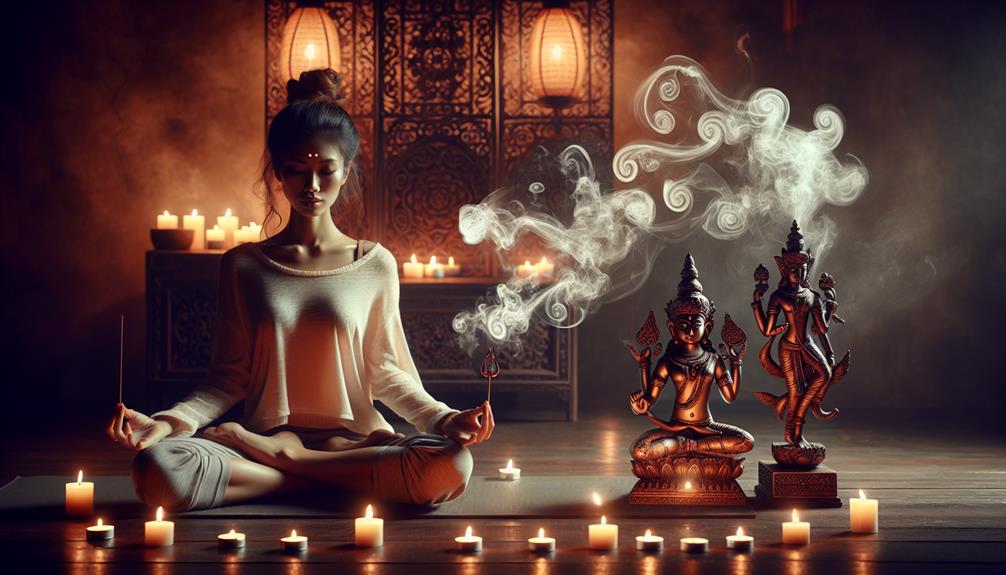What Do You Mean Kama
The concept of Kama, often associated with desire, pleasure, and sensuality, holds a deeper significance beyond its literal translation. While commonly linked to physical intimacy, Kama encompasses a broader spectrum of emotional and spiritual connections that influence various aspects of our lives.
What Do You Mean Kama
From its roots in ancient texts to its relevance in modern relationships, the exploration of Kama unveils a tapestry of meanings waiting to be unraveled. As we delve into the layers of this multifaceted concept, we begin to grasp the essence of Kama in fostering profound connections and enriching our human experience.
What Do You Mean Kama
Key Takeaways
- Kama embodies desire and pleasure in Hindu philosophy, enriching human life beyond physical gratification.
- Kama in relationships fosters profound connections through emotional, physical, and spiritual aspects.
- Practices like active listening and expressing gratitude nurture Kama, fostering understanding and empathy.
- Embracing Kama in relationships involves prioritizing communication, empathy, physical touch, and creating a supportive environment.
The Origin of Kama
The concept of Kama, originating from ancient Sanskrit texts, embodies the essence of desire and pleasure in Hindu philosophy. Kama is deeply rooted in the belief that experiencing desire and pleasure is a natural and essential part of human existence. In Hindu thought, Kama is one of the four main goals of human life, known as Purusharthas, which also include Dharma (duty), Artha (prosperity), and Moksha (liberation).
What Do You Mean Kama
The origin of Kama can be traced back to ancient Indian texts such as the Vedas and the Upanishads, where the importance of desire and sensual pleasure in leading a fulfilling life is emphasized. Kama is not merely about physical pleasure but encompasses emotional, intellectual, and spiritual aspects as well. It is seen as a force that drives individuals towards creativity, procreation, and ultimately, self-realization.
What Do You Mean Kama
Understanding the roots of Kama provides insight into its significance in Hindu culture and philosophy. By recognizing and embracing the concept of Kama, individuals can strive for a balanced and harmonious life that acknowledges the importance of desire and pleasure alongside other essential aspects of human existence.
What Do You Mean Kama
Understanding Kama's Definition
Originating from ancient Sanskrit texts and deeply rooted in Hindu philosophy, Kama's definition encapsulates the essence of desire and pleasure in human existence. Kama, often translated as desire, represents the pursuit of sensory pleasure, emotional fulfillment, and aesthetic enjoyment. It goes beyond mere physical gratification to encompass the holistic experience of longing and satisfaction that enriches human life.
In Hindu tradition, Kama is considered one of the four main goals of human life, alongside Dharma (duty), Artha (prosperity), and Moksha (liberation). It is seen as a natural and essential part of the human experience, guiding individuals towards connection, intimacy, and emotional fulfillment.
Understanding Kama involves recognizing the complexities of desire and pleasure, acknowledging their significance in shaping our relationships and experiences. By delving into the depths of Kama's definition, individuals can explore the intricate tapestry of human emotions and connections, seeking a deeper sense of belonging and understanding in the world around them.
Exploring Kama in Relationships
In delving into relationships, one uncovers the multifaceted interplay of Kama's essence, enriching the tapestry of human connections and emotions. Kama, often associated with desire, encompasses a broader spectrum of emotional and sensual experiences that shape the dynamics between individuals. It serves as the invisible thread weaving through the fabric of relationships, igniting passion, intimacy, and compassion.
Within relationships, Kama manifests in various forms, ranging from the sparks of infatuation to the deep, enduring love that withstands the test of time. It inspires gestures of affection, gestures of kindness, and gestures of vulnerability that deepen the bond between partners. The exploration of Kama in relationships fosters understanding, empathy, and authenticity, nurturing a sense of belonging and acceptance.
Practices to Cultivate Kama
Exploring intentional practices to cultivate Kama can significantly enhance the depth and quality of relationships. By engaging in specific actions and behaviors, individuals can nurture and strengthen the bonds they share with others. Below is a table outlining some practical ways to cultivate Kama in relationships:
| Practices to Cultivate Kama | Description |
|---|---|
| Active Listening | Fully focusing on the speaker, showing empathy, and seeking to understand without judgment. |
| Expressing Gratitude | Acknowledging and appreciating the positive aspects of the relationship through words or gestures. |
| Quality Time Together | Investing time in shared activities, conversations, or experiences to deepen connection and foster intimacy. |
These practices encourage mutual respect, understanding, and affection, creating a nurturing environment for Kama to flourish. By incorporating these intentional behaviors into daily interactions, individuals can foster a sense of belonging and closeness within their relationships.
Embracing Kama for Connection
Embracing the essence of Kama in relationships fosters profound connections grounded in mutual understanding and affection. Kama, the Sanskrit term for desire or longing, encompasses the emotional, physical, and spiritual aspects of human connections. By embracing Kama in relationships, individuals can cultivate a deep sense of intimacy and belonging with their partners.
To embrace Kama for connection, it is essential to prioritize communication and empathy. Listening actively to your partner's needs and desires, expressing your own openly, and practicing empathy in moments of conflict can strengthen the bond between you. Additionally, physical touch, gestures of affection, and quality time spent together can nurture the Kama within a relationship.
Creating a safe and supportive space where both partners feel heard, valued, and respected is fundamental to embracing Kama for connection. By prioritizing mutual understanding and affection, individuals can foster meaningful and lasting relationships that fulfill their longing for deep emotional and spiritual connection.
Frequently Asked Questions
Is Kama Only Related to Romantic Love or Can It Apply to Other Types of Relationships?
Kama, in its essence, extends beyond just romantic love and encompasses various forms of relationships. It signifies a profound connection based on desire, passion, and intimacy, which can be experienced in friendships, familial bonds, or even professional interactions.
While commonly associated with romantic love, the concept of Kama transcends boundaries and can be manifested in different types of connections that evoke deep emotional and spiritual fulfillment.
Can Kama Be Experienced Without Physical Intimacy?
Experiencing kama without physical intimacy is indeed possible, as kama encompasses various aspects of love and desire beyond just the physical realm. Emotional connections, intellectual compatibility, and spiritual bonds all contribute to the richness of kama.
Understanding that kama extends beyond mere physicality fosters a deeper appreciation for the complexities of relationships and the diverse ways in which love can be expressed and felt.
How Can One Differentiate Between Genuine Kama and Infatuation?
Differentiating between genuine kama and infatuation involves introspection and observation of emotions and actions. Genuine kama is rooted in deep emotional connection, mutual respect, and understanding. It transcends physical attraction and withstands the test of time.
Infatuation, on the other hand, tends to be more superficial, driven by idealized perceptions and often fades quickly. By examining the depth of feelings, level of commitment, and long-term compatibility, one can discern between the two.
Are There Any Cultural or Religious Beliefs That Influence the Concept of Kama?
Cultural and religious beliefs significantly influence the concept of kama. Various cultures and religions have distinct perspectives on love, relationships, and intimacy, shaping how individuals perceive and experience kama.
These beliefs often dictate social norms, values, and expectations surrounding romantic relationships, influencing how individuals express and understand the complexities of love and desire within their cultural or religious framework.
Can Kama Be Cultivated in Relationships That Are Not Traditionally Defined as Romantic?
Kama, typically associated with romantic love in Hindu philosophy, can indeed be cultivated in relationships beyond the traditional romantic context.
Through fostering deep emotional connections, mutual respect, understanding, and appreciation for one another's well-being, individuals can cultivate kama in various relationships, such as friendships, familial bonds, and mentor-mentee dynamics.
Conclusion
In conclusion, the concept of Kama originates from ancient Indian philosophy, emphasizing love, desire, and pleasure. Understanding the definition of Kama is essential for cultivating deep connections in relationships.
By exploring Kama in various aspects of life and practicing techniques to enhance it, individuals can embrace Kama as a powerful force for building meaningful connections.
Embracing Kama opens pathways to profound understanding, enriching interactions, and fostering deeper bonds with others.

